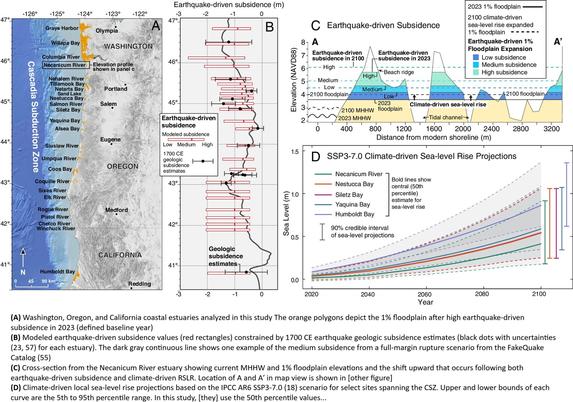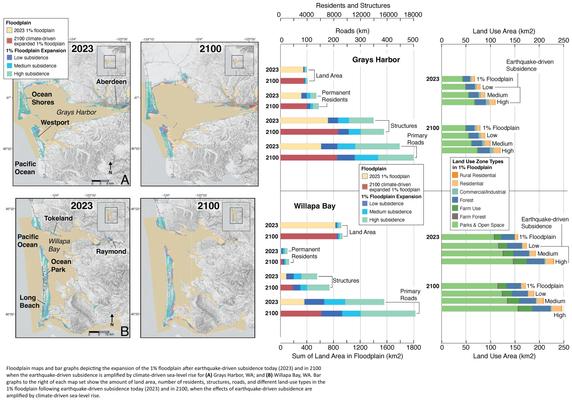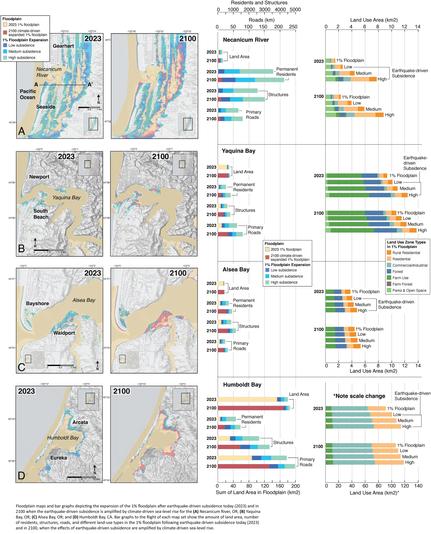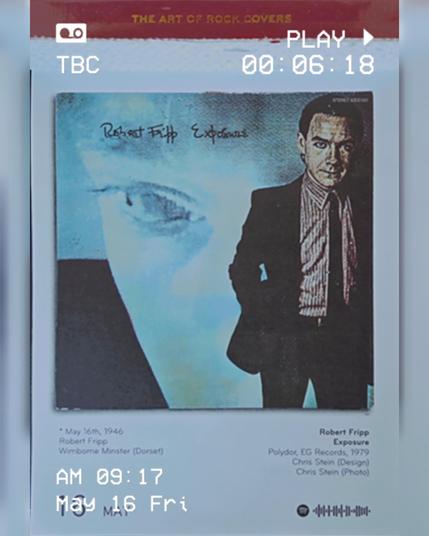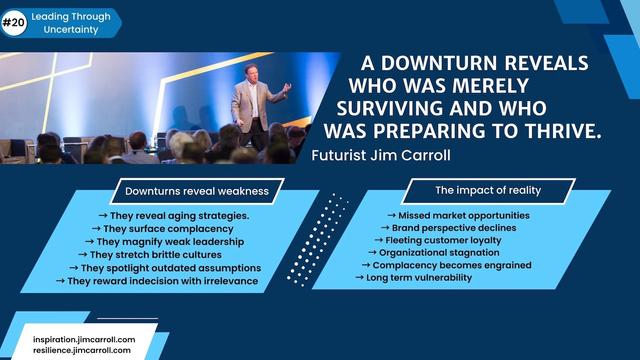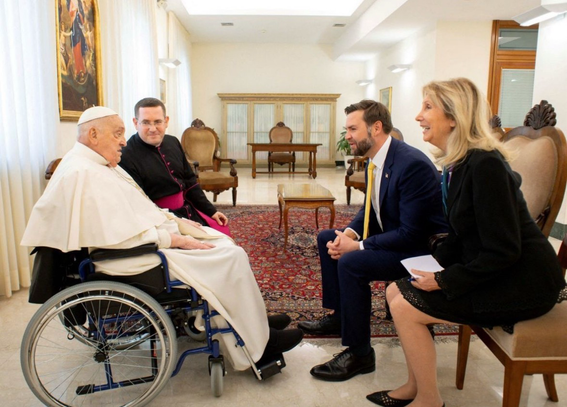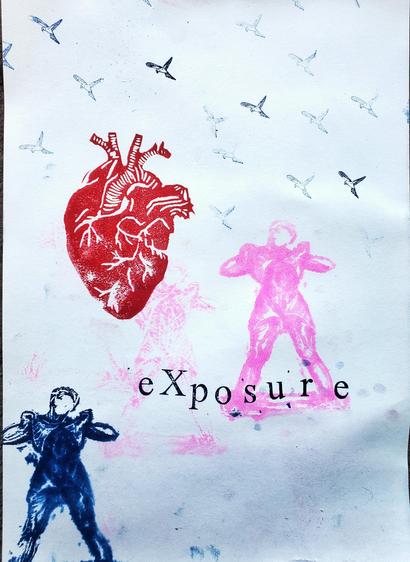On April 1 staff of CDC's Childhood #Lead #Poisoning Prevention Program was terminated as part of agency's reduction in force. The staff included #epidemiologists, #statisticians, and advisors who specialized in lead exposures and responses. The cuts were immediately consequential to health officials in #Milwaukee, who are currently dealing with a lead #exposure crisis in #publicschools Six schools have had to close, displacing 1,800 students. https://arstechnica.com/health/2025/05/cdc-can-no-longer-help-prevent-lead-poisoning-in-children-state-officials-say/ #publichealth #healthcare
#Exposure
🎉 So you want to "make a living" as a writer? 🤑 Just ignore the fact that everyone in your life will remind you that #exposure doesn't pay the rent. 😏 Apparently, the secret sauce involves subscribing to newsletters and reading endless articles about "fact-based #journalism." Good luck with that! 🍀
https://thewalrus.ca/how-to-make-a-living-as-a-writer/ #writerlife #freelancewriting #newslettertips #HackerNews #ngated
Increased Flood Exposure In The Pacific Northwest Following Earthquake-Driven Subsidence And Sea-Level Rise
--
https://doi.org/10.1073/pnas.2424659122 <-- shared paper
--
https://oregoncapitalchronicle.com/2025/05/02/big-one-coupled-with-rising-ocean-could-leave-many-in-northwest-living-in-flood-zones-study-finds/ <-- shared media article
--
#GIS #spatial #mapping #coast #coastal #sealevelrise #sealevel #SLR #climatechange #PNW #PacificNorthWest #Cascadia #flood #flooding #risk #hazard #exposure #damage #infrastructure #publicsafety #geology #fault #faulting #engineeringgeology #subsidence #earthquake #floodplains #omgoing #spatialanalysis #model #deformation #modeling #roads #residents ##Washington #Oregon #California #subduction #communities #management #planning #mitigation #coastalengineering #sinking
#NikFilter leben auch nur noch von ihrem Ruf, oder? Finde die Bedienung und Übersichtlichkeit von #Exposure beispielsweise um Welten besser. Selten ist eine Testversion derart schnell wieder von der Platte geflogen wie Nik ...
Reduce Inflammation Like a Pro With 4 Easy Tips From an NBA All-Star https://www.rawchili.com/nba/39261/ #Basketball #body #ColdShower #exposure #fan #illness #inflammation #injury #Love #MoreTime #nature #NBA #protein #routine #source #WellRecovery #workout
1979 erschien #RobertFripp s Studioalbum #Exposure. Das Werk, stilistisch zwischen Experimental Rock, Art Rock und Ambient, erreichte Platz 79 der US-Billboard 200. Zu den bekanntesten Songs zählen "You Burn Me Up I’m a Cigarette" und "Here Comes the Flood". Gastmusiker wie Peter Gabriel, Daryl Hall, Peter Hammill und Phil Collins wirkten mit. Teile des Albums mussten wegen Vorgaben der Plattenfirmen neu besetzt werden.
👇
https://www.instagram.com/p/DJtMkR3ouLQ/?igsh=b3BqaHIweGE1NXl0
Tariff time! Prices were getting higher, no inventory at B&H, so I snagged 160 exposures to get deals (& yes, I gave B#z0s another 18 cents). The squares work out to $1.14 each & the minis only $0.84! My camera takes either format, but I have to find the other camera back. Will keep the film in the fridge.
#inflation #tariffs #Chinese #imports #shipping #instant #camera #box #film #photography #flash #timer #selfie #double #exposure #square #format #mini #Instax #Fuji #tripod #say #cheese
What is HDR, anyway?: Excellent discussion of dynamic range in imagery, in practice
https://www.lux.camera/what-is-hdr/
#via:hackernews #photography #exposure #images #photos #hdr #+
Lens-Artists Challenge #347: Break The Rules!
Due to the inclement weather that has been plaguing Portugal for what seems like forever, I wasn’t able to take part in last week’s ‘Cinematic’ Challenge. (Not yet, that is. I will submit an entry once we get to the location that I had in mind.) This week, though, I was determined to take part, no matter what. It’s Ritva’s turn to host the Challenge, and her theme is ‘Breaking The Rules‘. Well, how could I possibly resist that? ‘We work so hard to learn the photography rules,’ says Ritva, ‘but now it is time to BREAK them!!’ Then Ritva raises a salient point, ‘The problem is, that in order to break a rule, you must know that there is a rule in the first place!’
And that’s actually what stymied me. I’ve been making photographs for a long time. Perfectly exposed (mostly), well focused, and (most of the time, I hope) nicely composed, that I’ve never really thought about the rules of photography that I was taught back in the day. It’s only in the past few years, with my renewed interest in film photography, that I’ve consciously tried to make something out of the ordinary with both film and digital media: Intentional Camera Movement (ICM), light leaks, redscaling film, that sort of thing. But even then, I still kind of follow the rules.
Looking at these ICM images, for example. Even though the subject is blurred, I’ve still unconsciously tried to place the boundary between the grass and the trees about one-third up from the bottom of the frame. Dammit! So my idea this week was to take a ‘walk around the block’ and make some ICM images using a Canon PowerShot G12 digital camera fitted with an Urth ND64 (6-stop) neutral density filter.
I’m not really sure if these are ‘rule breakers’, because I’m not really sure what the rules are any more. But I hope that you will like them. Themes for the Lens-Artists Challenge are posted each Saturday at 12:00 noon EST (which is 4pm, GMT) and anyone who wants to take part can post their images during the week. If you want to know more about the Challenge, details can be found here, and entries can be found on the WordPress reader using the tag ‘Lens-Artists’.
If you are on Mastodon, you can now follow this blog directly. Just go to Mastodon and follow the ‘Snapshot’ WordPress account at @keithdevereux.wordpress.com. All new posts will be automatically updated to your timeline.
#Artistic #Blur #Challenge #Creative #Effect #Exposure #ICM #IntentionalCameraMovement #LensArtists #Motion #BreakTheRules #LensArtists
"A downturn reveals who was merely surviving and who was preparing to thrive" - Futurist Jim Carroll
What happens when you don’t do the things you should be doing when times are good? Those things you didn't do stick out like a sore thumb when times are bad!
Let’s be blunt: recessions expose the cracks that were already there.
And if we’ve spent the last 19 posts building a blueprint for resilience, innovation, momentum, and opportunity — it’s time to talk about the other side of the coin. How recessions make things go wrong, fast, for those who haven't done a great job of aligning to a changing world.
Because not everyone makes it through.
Some organizations stall out. Others collapse entirely. And the reason isn’t usually a lack of potential. It’s paralysis. A lack of organizational agility. A culture that doesn't support fast collaboration. Weakness in the product or service line. Or any other number of systemic, endemic failures that would have been leading the organization towards failure even during the best of times.
In the worst of times, all those weaknesses now becoming glaring, exposed to the harsh light of reality.
Downturns don’t just challenge your organization - they reveal it. They surface complacency. They magnify weak leadership. They stretch brittle cultures. They spotlight outdated assumptions and aging strategies. And most dangerously? They reward indecision with irrelevance!
A recession isn’t a reason to shrink.
It’s a reason to rethink.
And if you want to be ready for what comes next — you’ve got to move while others pause.
#Exposure #Resilience #Failure #Weakness #Preparation #Innovation #Leadership #Downfall #Culture #Opportunity
Summoned out of Death and into Life
Psalm 30:1a-b,2-3 I will exalt you, God, because you have lifted me up… O Abba God, I cried out to you, and you restored me to health. You brought me up…from the dead; you restored my life as I was going down to the grave.
Introduction
Have you ever been dead set that you were absolutely, positively, without any doubt, completely and totally, 100% right? Like, nothing was going to drag you from that throne of being right. Like, you knew you were right and then your knowing knew and then that knowing knew you were 100%, beyond a shadow-of-a-doubt right? Like, the level of right that makes you wager bets when you don’t like to wager bets ever. Like, that confidence bordering on smug arrogance type of knowing you’re right…
I’m sure you’ve never been there, but I’ve been there. Whether as a mom, a wife, a scholar, a priest there have been times where I’m certain I’ve got all those little knowing ducks in a row. I know this: this thing, this person, this concept, this best method, this ritual. But the reality is that everything I do know changes. Human beings don’t stay the same, they grow and change; concepts are always subject to change with new information and research; best methods change, it’s why parenting looks so different today than it did yesterday—same goes for any industry moving along with rapidly changing technology; even sacred rituals change, anyone here looking to head back into the catacombs to do church? In short, things change (animate and inanimate). When we are absolutely, positively convinced that we know we are right, everyone else will become wrong, and we will absolutely, positively promote death rather than life, indifference rather than love, captivity rather than liberation.
Acts 9:1-6
According to Luke, Saul enters the scene at the very beginning of chapter 8, right after the death of Stephen. Stephen the first deacon of the church and the first martyr of those who follow the way. He was condemned to death for preaching the gospel and exposing the Sanhedrin for what and who they were. Luke tells us in 8:1, And Saul was pleased with the destruction of [Stephen]. Saul then disappears from the narrative for the rest of chapter 8 only to resurface at the beginning of chapter 9.
At the beginning of chapter 9, Luke tells us, Now Saul, still breathing threats and killing the disciples of the Lord, approached the high priest and asked for letters from him to the synagogues in Damascus so that he might find certain people being of the way, men and also women, and after binding them he might lead them into Jerusalem (vv. 1-2). Not only did Saul approve of the death of a deacon proclaiming the liberative gospel to a people stuck in captivity, he also continued in hot pursuit of the people who, because of proclamations like Stephen’s, began following the way (the way of faith in Jesus the Christ, God’s son). These who followed the way, for Saul, were those who were no straying from God and God’s law, they were heretics and blasphemers, and this deserved nothing less than imprisonment and death. What Luke is painting for his audience is a picture of a devoted zealot of the law of God; Saul’s mission was to make sure no Israelite strayed from the right way, the one he knew, the one upheld by decades and centuries of tradition. Saul isn’t a deviant or miscreant; he is a killer as one who kills in the name of the law and has authority to do so. Saul is absolutely sold out that this one way, the way he knew, the way he had been trained in, the way he had been raised in and schooled in was the one and only way that God could and would work. According to Luke, Saul was willing do whatever it took to ensure that what is remains as is even if it means imprisoning and executing anyone who lives, believes, says, and does otherwise.[1]
According to Luke, Saul is closed in on himself and what he knows and believes to be true and right; he is, as Martin Luther would say, curved in on himself and violence thrives among people curved in on themselves, convinced of their own rightness and goodness, and devoted to their ideologies reinforcing their status quo which encourages their curved-in-ness.[2] Against this type of person, this one that Saul is, the disciples and followers of the way have absolutely no chance; their way of seeing the world and understand justice will collapse under the weight of Saul’s because there is no one stronger and more resistance to listening and seeing than the one who is curved in on himself.[3]
Saul, in being dead-set, absolutely and positively right is on a collision course with the reality of God—a God who is all about the interruption and disruption of the status-quo holding God’s beloved captive unto death.[4] Saul, the pursuer, is about to realize that he is the one being pursued.[5] Luke tells us, But while he was going near to Damascus, it happened that a light from heaven suddenly flashed around him like lightening, (v. 3). Saul collides—full steam—into God by way of his errant misconception of the world and of God’s activity of the world. Notice that the text does not tell us that Saul was eagerly searching for God because God was hidden and Saul couldn’t find God. Notice that the text tells us very plainly that God found Saul when Saul wasn’t looking for him. Saul was interrupted and disrupted on his way—stopped in his tracks by being tossed to the ground—and divinely readjusted and corrected and set on God’s way and on God’s track.[6]
Because of Saul’s encounter with God, he gains deep insight into who this God is. This is not the God of the cold tablets demanding blood sacrifice for disobedience or imprisonment for fracture. Rather, the God Saul encounters is a God who intimately knows the pain of those whom this God loves. And, Saul is not only disrupted and interrupted, but altogether unmade under the weight of a very intimate question:[7] and after he fell to the earth he heard a voice saying to him, “Saul, Saul, why are you persecuting me?” (v.4) Saul can’t answer the question because of the exposure: Saul isn’t absenting God from the pain and suffering he is causing; he’s directly hurting God, the one whom he thought he was protecting from offense and pain.[8] The only thing Saul can do is ask his own question in response to God’s question posed to him: And [Saul] said, “Who are you, Lord?” And [Jesus said], “I, I am Jesus whom you, you are persecuting…” (v.5). Saul is crushed under this divine revelation, in this divine encounter[9] with a God who resides in the flesh of Israel and not an abstract God hiding behind tablets.[10] Saul’s entire person and being, soul and body, mind and heart will be beckoned forth from that death and into the new life God has planned for him: being guided by the justice and rightness of God revealed through Christ by the power of the Holy Spirit and not according to his own conception of justice and rightness.[11]
Conclusion
Just as God felt the pain of the Israelites suffering under the oppression and violence and death of the government of Egypt, so too did God feel the pain of God’s beloved as Saul sought out and imprisoned and executed the followers of the way; just like in Easter, if you mess with God’ beloved you mess with God because nothing stands between God and God’s beloved, not even death and those who believe they have the power and authority to deal in it.[12]
When the women who entered the empty tomb on Easter Sunday morning, they were asked, why do you look for the living among the dead?I believe this morning, when Jesus asks Saul, “Saul, Saul, why are you persecuting me?”, it is the exact same question. While the women were looking for the living among the dead, Saul was dealing out death where there was life. Both are stuck in an old way and order of understanding God in Christ and the power of the Holy Spirit. Anyone can become stuck in death in one of two ways: passively by assuming God can’t do something new and actively by being convinced God would never do something beyond what you absolutely positively know to be right.
So, we are put on notice today by Luke’s words. It’s not about us being right and assuming we know what God is up to because of the way it’s been done for years and years. When we become dead set on being right, we will bring violence and death to others as we force them to comply and obey by dragging them into the prison of “our way or the highway”; this always will lead to sanctioning death. As we proceed through this Easter season, we are continually beckoned into that new life, new love, new liberation we received through the empty, unsealed tomb. Beloveds, we are of light, love, liberation, and life; let us live like we believe it.
[1] Jennings, Acts, 90. “Saul is a killer. We must never forget this act. He kills in the name of righteousness, and now he wants legal permission to do so. This is the person who travels the road to Damascus, one who has the authority to take life either through imprisonment or execution. No one is more dangerous than one with the power to take life and who already has mind and sight set on those who are a threat to a safe future.”
[2] Jennings, Acts, 91. “Such a person is a closed circle relying on the inner coherence of their logic. Their authority confirms their argument and their argument justifies heir actions and their actions reinforce the appropriateness of their authority. Violence, in order to be smooth, elegant, and seemingly natural, needs people who are closed circles.”
[3] Jennings, Acts, 90-91. “The disciples of the Lord, the women and men of the Way, have no chance against Saul. They have no argument and certainly no authority to thwart his zeal. They are diaspora betrayers of the faith who are a clear and present danger to Israel. This is how Sauls sees them his rationality demands his vision of justice.”
[4] Willie James Jennings, Ephesians, Belief: A Theological Commentary on the Bible, eds. Amy Plantinga Pauw and William C. Placher (Louisville: WJK, 2017), 90. “God disrupts the old order by interrupting lives. Luke has removed every temporal wall that might separate in our thinking the God who moved in ancient Israel from the God present in the world in Jesus from this God of untamable love. This is that same Holy One, and Saul too will fall into the hands of this desiring God.”
[5] Jennings, Acts, 91. “But what Saul doe not yet know is that the road to Damascus has changed. It is space now inhabited by the wayfaring Spirit of the Lord. Saul pursues, but he is being pursued.”
[6] Jennings, Acts, 91. “The long history of the church has turned the Damascus road into shorthand for a life-changing experience, and rightly so, because Saul, the closed circle, is broken open by God. Yes, a killer was confronted and stopped in his tracks, but equally powerful, the rationality for his murderous actions was shattered.”
[7] Jennings, Acts, 91. “There is no rationale for killing that remains intact in the presence of God. The power of this event almost overwhelms its textual witness. Luke is handling holy fire now. The question comes directly to Saul. This is a question too massive for him to handle because it is an intimate one.”
[8] Jennings, Acts, 91. “The question casts light on the currencies of death that we incessantly traffic in, and it has no good answer. The only good answer is to stop. But now this is God’s question. It belongs to God. It belongs with God. Hurt and pain and suffering have reached their final destination, the body of Jesus. Now the divine presence will be revealed to Saul, not simply divine revelation, but a new revelation.”
[9] Jennings, Acts, 92. “Saul turns form defending the name of the Lord to serving Jesus, and for this we will soon suffer. He has crossed that line that separates this faith from all others. He has heard the voice of a crucified God. There is a stark truth here in this conversation to poignant that we sometimes ignore its abiding effect on us. Saul experienced the Lord Jesus. He encountered him, and this made Saul vulnerable. Experiencing the Lord Jesus makes us vulnerable.”
[10] Jennings, Acts, 91-92. “The Lord has a name…This is the bridge that has been crossed in Israel. The Lord and Jesus are one. This is the revelation that now penetrates Saul’s being and will transform his identity. He turns from the abstract Lord to the concrete Jesus. A future beckons in the pivot from holy faith to holy flesh. …Saul moves from an abstract obedience to a concrete one, from the Lord he aims to please to the One who will direct him according to divine pleasure.”
[11] Jennings, Acts, 91-92. “Discipleship is principled direction taken flight by the Holy Spirit. It is the ‘you have hard it said, but I say to you’—the continued speaking of God bound up in disruption and redirections.”
[12] Jennings, Acts, 92-93. “Jesus is one with the bodies of those who have called on his name and followed in his way by the Spirit. Their pain and suffering is his very own. This too is scandal. This too is a crossed line. They mystery of God is found in human flesh, moving in and with the disciples who are a communion of suffering and witness to life Saul is meeting a God in Jesus who is no alien to time, but one who lives the everyday with us….Yet just as he confronted Saul, this God is no passive participant in the suffering of the faithful, but one who has reconciled the world and will bring all of us to the day of Jesus Christ. Saul has entered that new day.”
#Beloved #DeathToLife #DivineExposure #Encounter #Event #Exposure #Liberation #Life #Love #NewLife #NewOrder #Paul #RoadToDamascus #Saul #Summoned #TheBookOfActs #WillieJamesJennings
Steve Carell Celebrates ‘The 40 Year-Old Virgin’ 20th Anniversary, Kerry Washington Premieres ‘Shadow Force,’ Reese Witherspoon Makes a Pit Stop in Miami and More Celebrity Photos: May 2025
#Variety #Events #News #Photos #Exposure #JustForVariety
https://variety.com/gallery/may-2025-celebrity-photoscelebrity-photos-may-2025/
Nothing pays the bills like exposure… said no one ever😭
Tag a fellow colleague who gets it!
#memes #marketingmemes #employee #client #remotework #worklife #salary #exposure
Jezus volgen is geen pose. Het is geen foto, geen applaus, geen eer. Het is de moed hebben om af te dalen, de ander te ontmoeten. De sociale leer van de Kerk is geen bijzaak. Ze zegt ons: Armen eerst. Migranten als mens, niet als last. Bruggen, geen muren. Wie Christus volgt, kiest niet voor gemak of eigen roem zoals Vance. Hij kiest voor de minste. Niet voor het plaatje. Maar met daden, stil, radicaal, eenvoudig. Alles voor de mens. Niets voor de show. Amen. #PopeFrancis #Vance #exposure
Painting on paper, 20 x 30 cm: Ambiguous impulses for your mental cinema!
#kunst #contemporaryArt #mentalCinema #analogArt #painting #rubberStamp #reliefPrinting #saveBioDiversity #climateActionNow #systemChange #endFossilFuels #makeArtNotWar #noAFD #NoRacism #NoFascism #humanRights #humanDignity #Нетвойны #anatomy #muscles #innerLife #introspection #emblematy #baroque #exposure #theDisplay #revelation #watchMe #heart heartbeat #littleBirds #flyingBirds
New measles exposure warnings in Kingston, Tamworth, Napanee
The local health unit is telling people who visited a Kingston Cineplex theatre screening of A Minecraft Movie this month, or a school and post office in Tamworth, and hospitals in Napanee and Prince Edward County, that they may have been exposed to measles.
#health #warning #exposure #measles #Kingston #Tamworth
https://www.cbc.ca/news/canada/ottawa/new-measles-exposure-warnings-in-kingston-tamworth-napanee-1.7511129?cmp=rss

